Rossiya Rossiya Rossiya!
If you just blame everything on either the Russians or Brexit, you'll never have to take responsibility for anything ever again.
“No one wants to lie. But part of our duty is to uphold public trust.
And sometimes that means having a nonexclusive relationship with the truth.”
Gill Biggaloe
Just 28 days until the next Fed Decision.
"Ask 'How about an attack on Stalin? Is that entitled to a hearing?', and the answer more often than not will be 'No'. In that case the current orthodoxy happens to be challenged, and so the principle of free speech lapses."
I wrote on April 12, 2018:
People have lost their minds.
Worrying about foreign propaganda, while completely ignoring the domestic propaganda, is like worrying about a mosquito as you sit in the belly of whale.
Wake up. Question authority. Check facts yourself.
Understand that you are regularly lied to.
As you may know, I was one of the top bankster and neo-con critics on Twitter, for 10 years (and, other than Whitney Webb, I think I covered the Epstein network as well as anyone.)
But how many people do you know who got permanently suspended from Twitter where the Twitter Vice President of Trust and Safety - the new Vijaya Gadde - tweeted this about them?
Why am I beyond the pale? They’ve let all sorts of people back.
Check out Ellas’ bio. Ella Irwin spent seven years as a Vice-President at JPMorgan Chase.
I pointed out JPMorgan’s criminality many, many times over the years. Makes me wonder.
I can see that many of my nearly 100k Twitter followers don’t even know where I’ve gone. Frankly, I’d only use Twitter now to advertise my Substack, but if you’re bored, feel free to continue to let ElonMusk and ellagirwin know that destroying the availability of my 10 years of tweets and links is ridiculous, and completely uncalled for, especially after Elon’s faux claims of being a free-speech advocate.
I posted some dumb jokes - and yes, some funny short video clips that had music snippets, which I’m happy to delete, if I could - but I posted a lot of serious stuff too.
And, unlike many blue-checks not suspended from Twitter, I never advocated killing 4.5 million innocent people.
A reminder that these Signature Bank goofballs were taxpayer-backed, costing us billions:
Court orders Theranos founder Elizabeth Holmes to go to prison
Elizabeth Holmes figured out that the "startup" ecosystem operates based on social proof, not scientific thinking, and played these billionaires and former cabinet secretaries like a fiddle.
All an investor needed to do to vet Theranos was to conduct a simple experiment comparing Theranos results to those from a real blood lab. Even a sample size of one would have revealed the inaccuracy and prevented them from losing money on this!
"This is a revolutionary company that threatens to change healthcare the same way that Amazon changed retail, or Intel and Microsoft changed computing, or Apple, yes, changed the cellphone."
- Jim Cramer on Theranos, April 2015
Funny Story: Randal Quarles, the guy I picked on yesterday, and the Federal Reserve’s Vice-Chair for Supervision from 2017 to 2021, stated in his 2017 Public Financial Disclosure Report that he had invested “over $1,000,000” in Theranos (thanks to WSOP).
“Among the countries in western Europe, the propensity to hoard gold has probably been strongest in France ; the French people, remembering the old gold franc introduced by Napoleon in 1803 (the so-called "franc germinal"), which maintained its value intact up to 1914 and thus withstood the strain of two lost wars — 1814 and 1871 — as well as a number of other vicissitudes, cannot help thinking that, compared with the paper franc which since 1914 has lost 99 per cent, of its purchasing power, gold, irrespective of any short-term fluctuations in the price paid for it, is in the long run a trustworthy basis for savings.”
Bank for International Settlements, Nineteenth Annual Report, 1949
GMO 7-Year Asset Class Forecast: 1Q 2023 Sobering.
According to the WSJ, there are more than 3,000 ETFs on U.S. exchanges.
Investment Trusts were sort of the ETF’s of the 1920’s:
Investment trusts multiplied like locusts. There were now said to be nearly five hundred of them, with a total paid-in capital of some three billion and with holdings of stocks—many of them purchased at the current high prices—amounting to something like two billion. These trusts ranged all the way from honestly and intelligently managed companies to wildly speculative concerns launched by ignorant or venal promoters. Some of them, it has been said, were so capitalized that they could not even pay their preferred dividends out of the income from the securities which they held, but must rely almost completely upon the hope of profits. Other investment trusts, it must be admitted, served from time to time the convenient purpose of absorbing securities which the bankers who controlled them might have difficulty in selling in the open market. Reprehensible, you say? Of course; but it was so easy! One could indulge in all manner of dubious financial practices with an unruffled conscience so long as prices rose. The Big Bull Market covered a multitude of sins. It was a golden day for the promoter, and his name was legion.
Tiger Global looks to cash in part of $40bn portfolio of private companies
“If it's such a great trade, why are you offering it to me?" - line from 𝘛𝘩𝘦 𝘉𝘪𝘨 𝘚𝘩𝘰𝘳𝘵
Everyone who’s been bearish on the Nikkei since 1991 has now been proven wrong!
Bill Fleckenstein in Grants’ Interest Rate Observer, July 7, 1989:
The paragraph below is talking about Japan in the late 1980's. The Nikkei hit almost 39,000 in 1989 and 34 years later is still 23% lower (nominally).
"...the real reason for Japan’s sky-high stock prices: the country’s prolonged period of low interest rates."
Even Jeremy Siegel’s Stocks for the Long Run mentions the insanity:
While traveling in Japan in 1987, Leo Melamed, president of the Chicago Mercantile Exchange, questioned his Japanese hosts on how such high valuations could be placed on Japanese stocks. "You don't understand," they responded, "We've moved to an entirely new way of valuing stocks here in Japan." At that moment Melamed recalls feeling certain that the Japanese market was near the end of its great bull market.2 For it is when investors cast aside the lessons of history that those lessons comeback to haunt the market. The Nikkei Dow-Jones, which had surpassed 39,000 at the end of 1989, fell to nearly 14,000 by August of 1992…
Price-insensitive (aka Passive) investing:
…in 1989, when the Japanese stock market was trading at close to 100 times earnings, a passive index portfolio of global equities would have had roughly 40% allocated to Japanese equities.
Published at the exact peak of Japanese markets: A Vote for Japanese Management Style : Workplace: A new study finds that Japanese techniques can improve productivity, even with American workers who don’t share the same work values.
And here’s a lesson the Federal Reserve never seems to learn: Take It From Japan: Bubbles Hurt
This always cracked me up:
Tom Friedman is one of the stupidest smart people I’ve ever come across.
Check out the sobering comments towards the end of this short interview from Thomas Peterffy, Hungarian-born founder of Interactive Brokers.
I had saved this quote from Peterffy in 2018:
"The only way to make money reliably on Wall Street is by front running. Front running means to buy or sell things ahead of others, knowing or expecting that other people will follow you later."
Milken 2023 Panel: Credit Outlook This panel seems like a group of vulture investors (which is fine) waiting to pounce. The key buzzword seemed to be “private-credit.”
There were a number of interesting charts in the panel presentation:
It looks like “private-credit” is likely to regret a lot of their 2019-2021 high-yield tech loans. The thing I wondered about the panel is that everyone seemed to be waiting for opportunities to “deploy capital,” but did any of them make bad loans over that period, and if so, are they be as flush as they seem to be? Who knows.
Private credit fueled the pre-2022 mania, and now, without the tailwind of ZIRP and trillions of Fed Fun Coupons, will private credit continue to thrive? We’ll see. Maybe it’ll just be new, less reckless, private creditors.
So we’ve all heard about the M2 year-over-year % drop, and it is unusual, but people seem to forget that the level of M2 went to the moon not long ago. We’re just back to late 2021 levels - i.e., peak mania.
"If the first visible effect of a panic or depression is the deflation of debt; then,
debt must have caused the panic or depression."
Private equity portfolio companies on track for most bankruptcies since 2020
James Montier: THE CURIOUS INCIDENT OF THE ELEVATED PROFIT MARGINS
Vornado warning: REIT slipping toward debt breach Coverage ratios on two of Vornado’s debt covenants declined by more than 70 basis points over the past year, according to Goldman. The main culprit was rising interest rates: The REIT’s weighted average rate went from 2.45 percent to 4.23 percent after the Federal Reserve began hiking rates last spring.
Imagine being so fragile and levered that 4.23% threatens to bust your business plan.
Interesting real estate take I came across:
After passing 15 blocks of abandoned stores and homeless people on the street, I realized that retail in New York City has died in 2020-2021. The stores sold souvenirs to tourists, and New York simply stopped receiving tourists due to the pandemic. However, the real problem is that after three years, no one has purchased these stores. They remain abandoned and are now breeding grounds for rats and cockroaches. The reality is that the younger generation does not have enough money to buy assets. This means that the supply is much greater than the demand. Furthermore, many of the previous store owners are aged between 60-70 years old, and their children do not want to continue the family business.
Having grown up with wealthy people, I have seen this phenomenon very commonly in my social network. This means that when the old guard retires or passes away, there will be even more supply in the market. It does not make any sense to buy commercial (or even residential) real estate in this scenario. Additionally, the global population is decreasing, and people are having fewer children.
I made a few notes from this hearing today: Former Silicon Valley Bank and Signature Bank Executives Testify on Bank Failures
Vice, Decayed Digital Colossus, Files for Bankruptcy A group of creditors could buy Vice for $225 million…The company was considered to be worth $5.7 billion at one point.
“Was that a ghost?” I just like odd stuff.







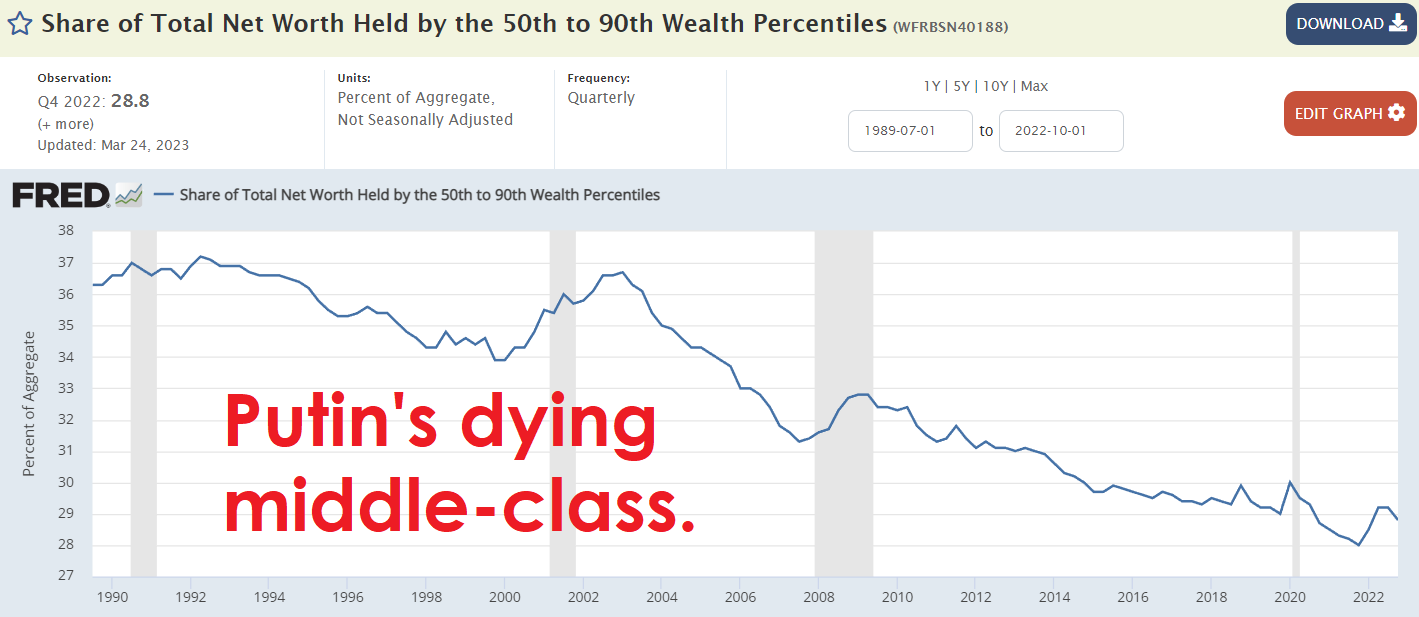



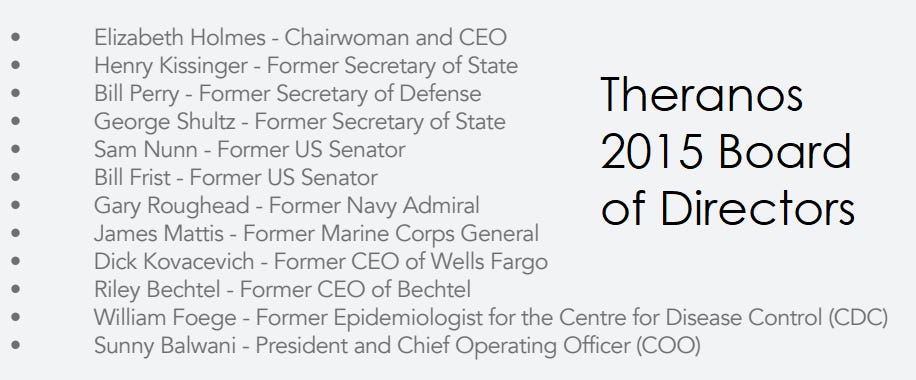

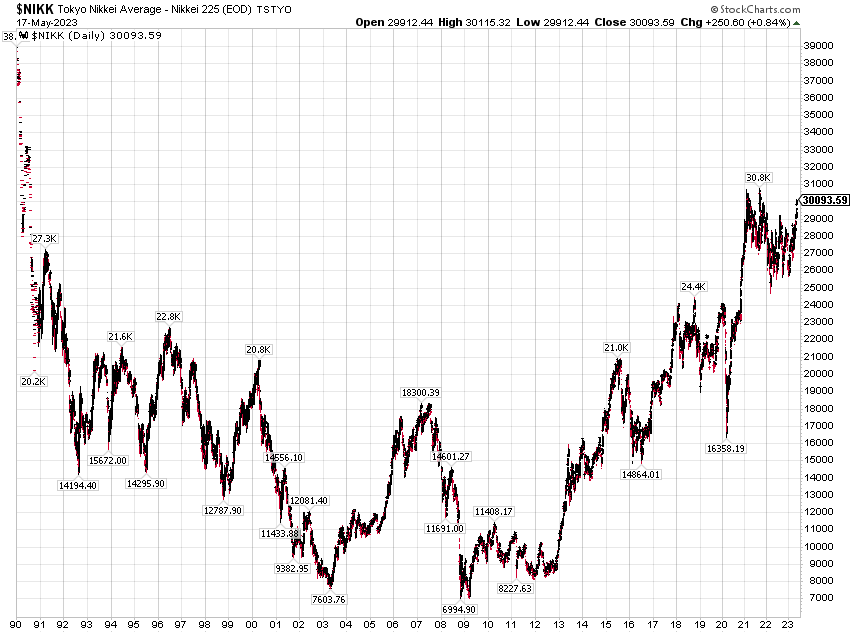
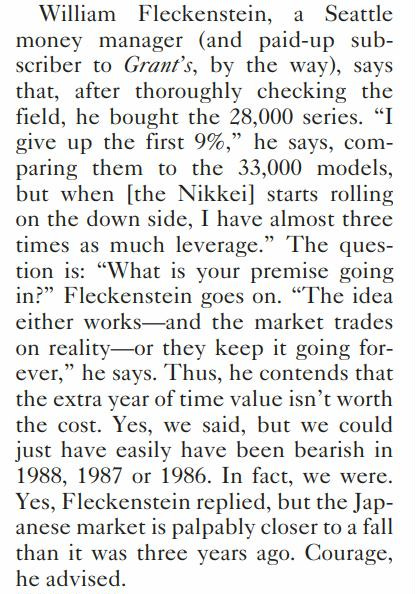
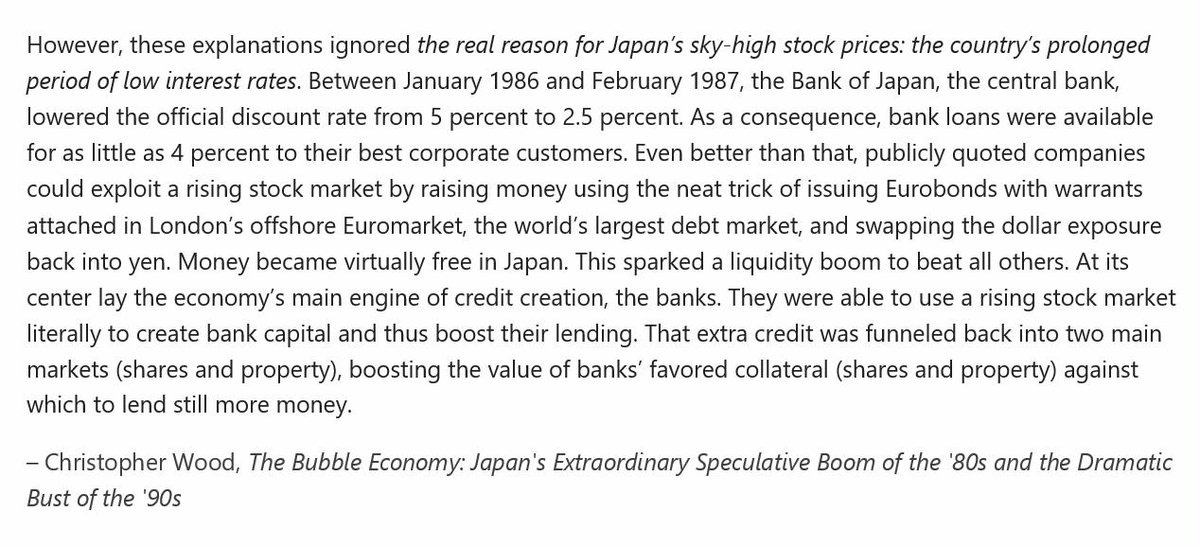


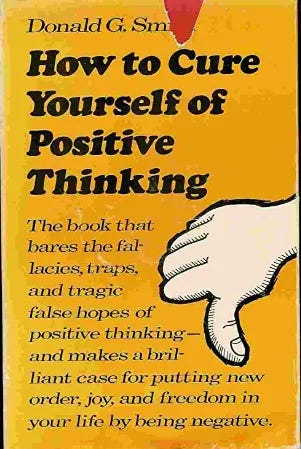
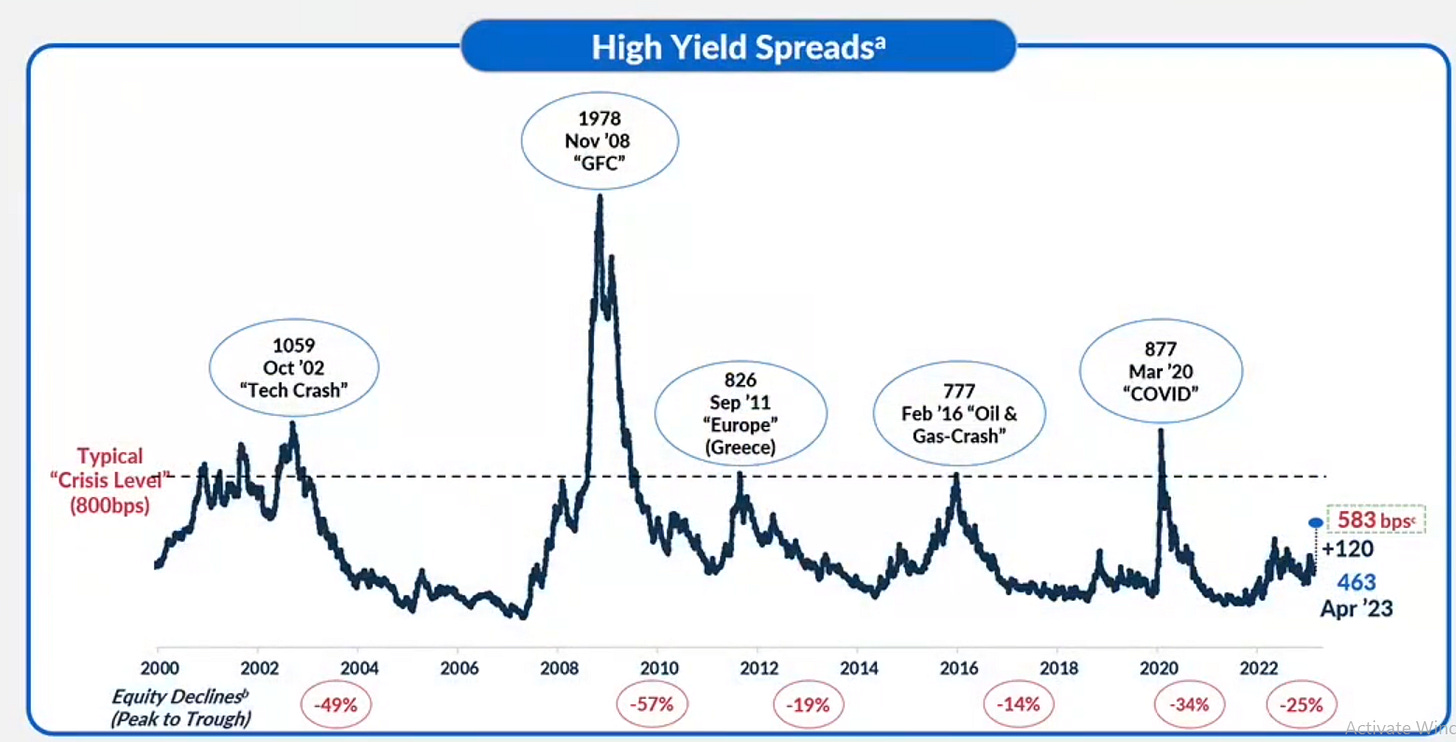











The current century has been all about lurching from one war to another. This time we are in a proxy war with a nuclear power capable of destroying the world many times over. Putin is an evil guy and the aggressor. But there are limits to the outcome we can achieve for Ukraine. Even writing what I just wrote would be attacked for being a “Putin apologist” or “enabler” if posted on Twitter. We have lost all sense of nuance and any debate on our policy, other than acceding to absolutism, is not permitted. Seems to me that a proxy war that keeps escalating is something requiring open and vigorous debate.
"The thing I wondered about the panel is that everyone seemed to be waiting for opportunities to “deploy capital,” but did any of them make bad loans over that period, and if so, are they be as flush as they seem to be? Who knows."
Net, net....there will be no capital to deploy. Rage on, friends...into the void.